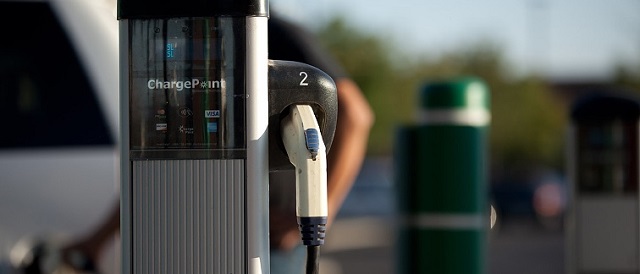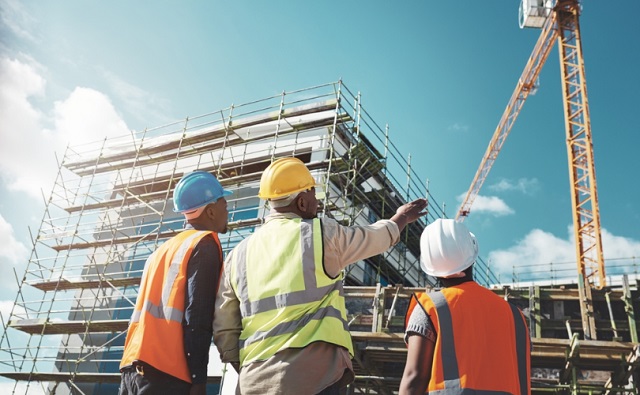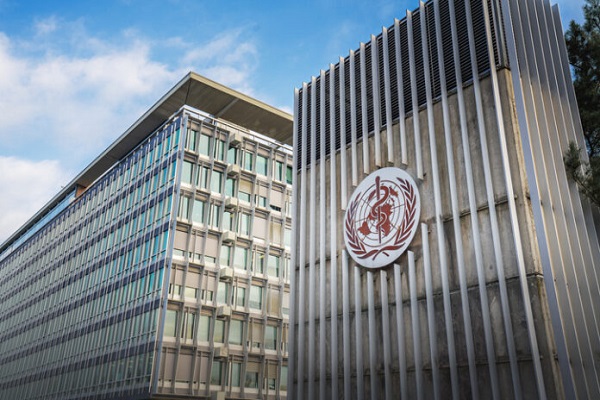Uncategorized
Pelosi poised to become House speaker, making history

WASHINGTON — Nancy Pelosi knew this moment would come, even if others had their doubts — or worked to stop her.
Pelosi is poised to be elected Thursday as House speaker, the only woman who has held the office and now one of few elected officials who will be returning to it. The last time a speaker regained the gavel was more than a half-century ago.
The California Democrat has spent her political career being underestimated, only to prove the naysayers wrong. In this case, it was by winning back the Democratic majority and amassing the votes for the speaker’s job.
“None of us is indispensable,” Pelosi told The Associated Press on the campaign trail last fall, “but I do know that I’m very good at what I do.”
In accepting the gavel, Pelosi will give a nod to the new era of divided government with a pledge to “reach across the aisle in this chamber and across the divisions in this great nation,” according to excerpts of her prepared remarks Thursday.
“The floor of this House must be America’s Town Hall: where the people will see our debates and where their voices will be heard and affect our decisions,” she says.
In previewing Democratic priorities, she talks about lowering health care costs, investing in green infrastructure and “restoring integrity” to government.
“We must be champions of the middle class and all those who aspire to it — because the middle class is the backbone of democracy,” she says.
Pelosi remains a highly polarizing figure, vilified by Republicans as a San Francisco liberal and a caricature of big government. But she is also a mother of five and a grandmother of nine who has shattered glass ceilings to become one of the most powerful politicians of the 21st century.
With President Donald Trump in the White House and Republicans still controlling the Senate, Pelosi’s return to the speaker’s office to lead a Democratic majority with its biggest freshmen class since Watergate shakes up the dynamic in Washington even beyond the new era of divided government.
Pelosi has faced pressure from some incoming Democrats who have been willing to talk about the possibility of impeachment proceedings against Trump. Pelosi has called impeachment a “divisive activity,” and Democrats were cautious about mentioning the “I” word during the 2018 midterms for fear it would backfire politically.
But Pelosi did not shy away from it Thursday in an interview airing on NBC’s “Today” show.
“We shouldn’t be impeaching for a political reason, and we shouldn’t avoid impeachment for a political reason,” she said, adding that she would wait for the findings of special counsel Robert Mueller’s investigation into Russia meddling in the 2016 election.
Only the House can begin impeachment proceedings. And while Justice Department guidelines suggest a sitting president can’t be indicted, Pelosi called that “an open discussion.”
“Everything indicates that a president can be indicted after he is no longer president,” she said.
Trump himself has denied any wrongdoing.
Pelosi is one of the few congressional leaders who seem to understand Trump, both being children from famous families now primed for deal-making. Trump appreciates strong characters, and, in perhaps a sign of respect, she is one of the few congressional leaders in Washington he has not given a nickname — though he has made her a frequent target.
Pelosi’s return to the speaker’s office was not guaranteed. A core group of rank-and-file Democrats has hungered for new leadership, saying it’s time for a new generation to take the helm. They tired of the Republican attack ads featuring Pelosi that are constantly run against them back home, and they worried she would be a drag on efforts to keep the majority in the next election. They enlisted some of the newcomers from the freshmen class to their ranks to try to stop her from regaining the gavel.
But one by one, Pelosi peeled away the skeptics, flipping “no” votes to the “yes” column, sometimes in a matter of days. Some were given lead positions on their legislative priorities, even a gavel of their own to chair special panels.
And Pelosi gave a little, too, promising, at 78, to serve no more than four years in leadership, making way for the next generation.
It’s unclear what the final tally will be when votes for speaker are counted Thursday as the first act of the new Democratic majority.
“She’ll be more than fine,” said Rep. Hakeem Jeffries of New York, the incoming chairman of the Democratic caucus.
Jeffries said when he told his family that, because of his new position, he may be the one to put Pelosi’s name forward during the nomination proceeding, his youngest son said, “Don’t blow the moment, Dad.”
___
Follow Mascaro on Twitter at https://twitter.com/lisamascaro
Lisa Mascaro, The Associated Press
Uncategorized
RCMP recruitment failure has Alberta advocacy group calling for Provincial Police Service

News release from Free Alberta Strategy (A Strong And Sovereign Alberta Within Canada)
“Make no mistake, we are paying for these services that we aren’t receiving. Alberta’s taxpayers are paying tens of millions of dollars for nearly 400 vacant RCMP officer positions – for boots that are not on the ground.”
A recent report from the Royal Canadian Mounted Police (RCMP)’s independent Management Advisory Board had findings that are nothing short of alarming:
“Federal policing has now arrived at a critical juncture of its sustainability, which present risks for the national security and safety of Canada, its people, and its interests,” says the report.
After over a year of diligent study, the Board has been tirelessly firing off flares, signalling to all who will listen: the very foundation of our national public safety apparatus may be at risk of faltering.
This is doubly problematic because, as you well know, the RCMP is also responsible for boots-on-the-ground policing in large parts of the country, including many rural and remote areas – including in Alberta.
Rural crime has been a longstanding issue in Alberta, and social disorder continues to make headlines nightly.
Alberta Minister of Public Safety, Mike Ellis, took to social media platform X (formerly known as Twitter) to express his opinion:
“The independent report finds the RCMP has struggled in recent years to recruit and retain regular members, a problem that’s particularly acute in federal policing. This is not about the hard-working men and women on the frontline: they are doing everything they can. The reality is the RCMP do not have enough officers to police communities in Canada effectively.”
Ellis has been ahead of this story for months now.
In March, Ellis stated that:
“… on average, Alberta has an RCMP officer vacancy rate of 20 per cent. This means that Alberta is only being served by 1,522 of the 1,911 RCMP officers that the federal government has authorized for Alberta.”
“Make no mistake, we are paying for these services that we aren’t receiving. Alberta’s taxpayers are paying tens of millions of dollars for nearly 400 vacant RCMP officer positions – for boots that are not on the ground.”
The consequences of this capacity crisis are far-reaching.
Not only does it jeopardize the safety of Albertans, but it also undermines the credibility of Canada’s federal police force on the international stage.
With limited resources and personnel, the RCMP’s ability to address pressing national and global security concerns is severely compromised.
The Management Advisory Board, created in 2019 by the federal government to provide external advice to the RCMP commissioner, set up a task force in the fall of 2022 to study the federal policing program.
Overall, the report says budget and personnel shortfalls have left the RCMP “operationally limited,” restricting the number of cases it can take on annually.
Here are some more highlights from the report:
“Canada and its people have already begun to see the repercussions of the federal policing program being stretched thin.”
“Federal policing’s overall eroding capacity may have implications for the credibility of Canada’s federal police force and its investigations on the international stage.”
“Ultimately, this may influence Canada’s overall approach and standing in international politics, including its ability to advance global priorities.”
Clearly, we cannot afford to wait any longer.
Municipalities can ease the burden on our national security services by establishing municipal policing.
Several cities in Alberta already have their own police authorities, and the provincial government is providing funding for others interested in exploring this option.
Grande Prairie is already in the process of establishing their own municipal police service.
No word on how many other municipalities have taken the government up on their offer.
Unfortunately, President of Alberta Municipalities Tyler Gandam (also Mayor of Wetaskiwin) is featured prominently on the National Police Federation’s “Keep Alberta RCMP” website.
Interestingly, the Keep Alberta RCMP website doesn’t mention the fact that the advisory board even exists.
It doesn’t mention the report.
The notion that our federal policing infrastructure teeters on the brink of instability while Gandam appears to be asleep at the wheel, is deeply disconcerting.
The safety and security of Albertans must remain our top priority.
We cannot afford to wait any longer.
The time has come for the province to take swift and decisive measures to bolster policing capabilities in Alberta.
It’s time for Alberta to seriously consider the establishment of an Alberta Provincial Police Service.
It has been one of the core tenets of the Free Alberta Strategy.
If you agree, please reach out to your municipality and ask them to take steps to protect your community.
Together, we can keep Alberta safe.
Regards,
The Free Alberta Strategy Team
P.S. We’re hoping you’ll consider contributing to our cause. Your generous donation helps us make a positive impact in our community. No need to worry about any hold-ups or threats here. We’re just passionate about making a difference, and your support goes a long way in helping us achieve our goals.
Uncategorized
Making Alberta a geothermal energy leader

Eavor announces it’s the #1 geothermal energy startup company in the world – January 2024
Alberta is creating Canada’s first geothermal test site to advance drilling innovation, reduce emissions and create jobs.
Geothermal energy uses naturally occurring heat within the earth to heat water and buildings and generate power, with few emissions or environmental impacts. Alberta has vast pockets of heat below ground, making the province Canada’s geothermal leader, but testing and developing new technologies can be a barrier for many companies. Unlike the United States, Japan and other countries, Canada does not currently have an open-access test site to help spur innovation.
Alberta is taking the first steps to create a new Alberta Drilling Accelerator. This groundbreaking facility would be the first of its kind in Canada, establishing Alberta as a global hub for geothermal technology. This will drive new innovations in geothermal and other clean energy projects that can reduce emissions and power communities around the world.
To kick-start the project, the Alberta government is investing $750,000 to conduct a feasibility study led by Calgary-based Eavor Technologies and other stakeholders. The study is the first step in assessing the proposed facility. It will include identifying a site, business planning, research on the governance model, an economic impact analysis and stakeholder engagement that will lay the groundwork for the initial planning stages of the project.
“Alberta has been a global energy leader for more than a century, renowned for our skilled workforce, innovation and one of the largest oil and gas reserves on the planet. The proposed Alberta Drilling Accelerator presents enormous potential to help our province lead the next wave of energy projects here at home and around the world that reduce emissions, create jobs and enhance energy security.”
The Alberta Drilling Accelerator would help companies test out and develop new geothermal drilling techniques or technologies to reduce emissions and drive growth across the clean energy sector. It would be an open-access, technology-agnostic drilling test facility capable of drilling in challenging environments, including deep depths, high temperatures and different rock types.
The accelerator also would help speed up the development of carbon capture, utilization and storage; helium; critical minerals; and other clean technologies and commodities that rely on Alberta’s drilling sector. All of this helps attract investment and bring new technologies to scale in Canada.
“With cumulative geothermal investment poised to reach $1 trillion by 2050, a geothermal arms race is very much underway to commercialize novel drilling techniques that accelerate geothermal development – exhibited by testing facilities in the United States, China and Iceland. As Canada’s first geothermal test bed, the Alberta Drilling Accelerator will help bring geothermal technologies to scale, supporting companies like Eavor. We commend the Government of Alberta for this bold initiative.”
“We are proud to witness Eavor, a CDL-Rockies alumni company, create new opportunities for innovators like themselves to advance the adoption of energy transition technologies like geothermal. The Alberta Drilling Accelerator will further solidify Alberta’s position as a leader in the global sustainable energy landscape.”
If the feasibility study shows the facility is economically and environmentally viable, and if the project is approved by the Alberta government, the facility will start taking shape at the selected site and drilling could start as early as 2025.
“Canada is home to the most advanced drilling technology in the world. Not only do our members support the responsible development of oil and gas, but we are integral in the extraction of new energy resources like geothermal and critical minerals. Our workers are at the epicentre of Canada’s energy transformation. Our people, technology and processes are leading the way towards a more diverse energy future. The Alberta Drilling Accelerator is a government-enabled policy approach to expand Alberta’s drilling capacity and reach its full potential as the world’s most diverse and technologically advanced producer and exporter of sustainable energy and critical minerals.”
“The Alberta Drilling Accelerator is a testament to Alberta’s innovative and entrepreneurial spirit. Leveraging our oil and gas sector expertise, Alberta is poised to become the global leader in developing new geothermal technologies that will play an integral role in reducing emissions while supporting job creation.”
Quick facts
- The Canadian Association of Energy Contractors estimates that one active drilling rig, whether drilling for natural gas or geothermal, creates approximately 220 direct and indirect jobs and
$1 million in tax revenue. - In 2019, Eavor received $2 million in provincial funding through Emissions Reduction Alberta and Alberta Innovates for the world’s first closed-loop geothermal system.
Related information
-

 COVID-192 days ago
COVID-192 days agoCOVID Lab Leak: Over four later, EcoHealth Alliance funding is finally suspended
-

 Automotive24 hours ago
Automotive24 hours agoBiden’s Climate Agenda Is Running Headfirst Into A Wall Of His Own Making
-

 COVID-192 days ago
COVID-192 days agoNIH Quietly Altered Definition For Gain-Of-Function Research On Its Website, Former Fauci Aide Confirms
-

 Opinion1 day ago
Opinion1 day agoOrdinary working Canadians are not buying into transgender identity politics
-

 Energy1 day ago
Energy1 day agoNew Report Reveals Just How Energy Rich America Really Is
-

 Great Reset22 hours ago
Great Reset22 hours agoBiden Administration Eager to Sign WHO Pandemic Treaty
-

 Economy22 hours ago
Economy22 hours agoFeds spend $3 million to fly 182 politicians and bureaucrats to climate conference
-

 Economy21 hours ago
Economy21 hours agoCanadians experiencing second-longest and third steepest decline in living standards in last 40 years








